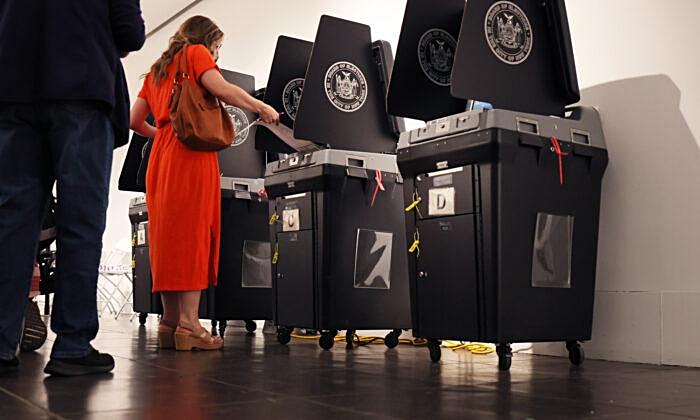A judge in New York has rejected a request to explicitly mention the term “abortion” in the description of a proposed constitutional amendment designed to expand anti-discrimination protections. This decision is a setback for Democrats who were seeking to provide voters with a clearer understanding of the amendment’s implications ahead of the November election.
Democrats argued that including terms like “abortion” and “LGBT” in the ballot description would help voters grasp the full scope of the amendment. However, the New York State Board of Elections decided to use the amendment’s technical language verbatim in the description, a decision upheld by Judge Weinstein.
Opponents of the amendment, including many Republicans, believe that Proposition 1 would incorporate controversial issues such as protections for abortion and transgender athletes into the state constitution. They welcomed the board’s choice to use more technical phrasing in the amendment.
In his ruling, Judge Weinstein stated that the language adopted by the Board of Elections was not intrinsically misleading and could not be legally challenged on that basis. He also noted that the potential effects of the amendment are difficult to predict and could likely be subject to legal challenges.
Weinstein wrote, “The central problem with these arguments arises out of the language of the amendment itself. I lack the necessary foresight to predict how the proposed amendment will be interpreted in specific contexts, and I also believe that it is not appropriate for a court to address complex interpretive questions regarding the meaning of a proposal before it has been enacted.”
Nevertheless, the judge did make some revisions to the wording of the proposed amendment and its abstract, which provides a brief description of the amendment’s intent.
The original text of the ballot description, as posted by the Elections Board, read:
“Adds Certain Protections to the State Bill of Rights. Adds anti-discrimination provisions to the State Constitution. Covers ethnicity, national origin, age, disability, and sex, including sexual orientation, gender identity, and pregnancy. Also covers reproductive healthcare and autonomy. A YES vote puts these protections against discrimination in the New York State Constitution. A NO vote leaves these protections out of the State Constitution.”
Weinstein ordered a revised version of the text, which now reads:
“Amendment to Protect Against Unequal Treatment. This proposal would protect against unequal treatment based on ethnicity, national origin, age, disability, and sex, including sexual orientation, gender identity, and pregnancy. It also protects against unequal treatment based on reproductive healthcare and autonomy. A YES vote puts these protections in the New York State Constitution. A NO vote leaves these protections out of the State Constitution.”
Similarly, the judge revised the abstract of Proposal Number One to provide more clarity. The revised abstract reads:
“This proposal amends Article 1, Section 11 of the New York Constitution. Section 11 currently protects against unequal treatment based on race, color, creed, and religion. The proposal will amend the act to also protect against unequal treatment based on ethnicity, national origin, age, disability, sex, sexual orientation, gender identity, gender expression, pregnancy, pregnancy outcomes, and reproductive healthcare and autonomy. The amendment allows laws to prevent or undo past discrimination.”
David Laska, a spokesperson for the New York Republican Party, stated that the court’s decision is a victory for voters who deserve a clear and unbiased description of the issues at stake. He said, “Today’s court decision means that voters are presented with neutral language describing the amendment, and that is a good thing.”
The Epoch Times has reached out to the law firm that filed the lawsuit on behalf of the plaintiffs and to New Yorkers for Equal Rights, the coalition supporting the amendment, for comment on the ruling.
A campaign director at New Yorkers for Equal Rights told The Associated Press that the amendment will permanently safeguard fundamental freedoms for New Yorkers, including the right to abortion, and voters deserve to be aware of this when casting their ballots.

